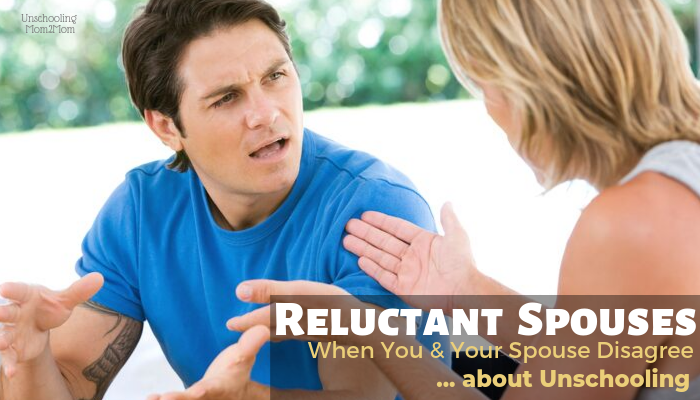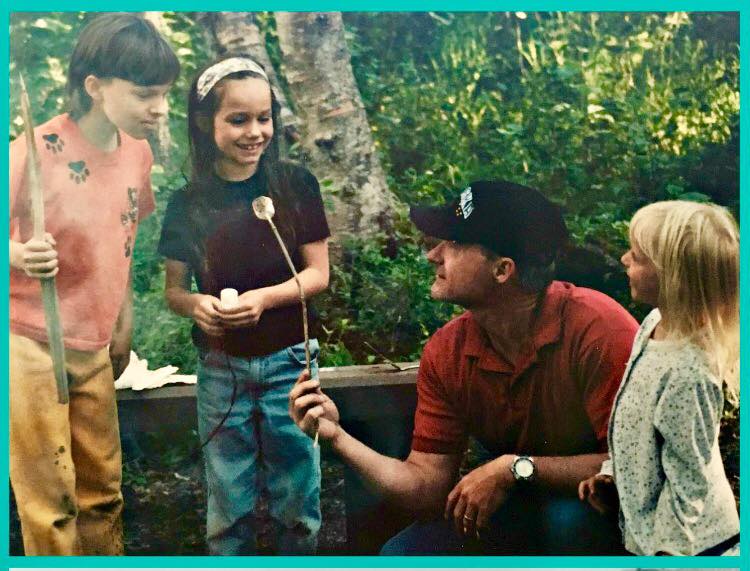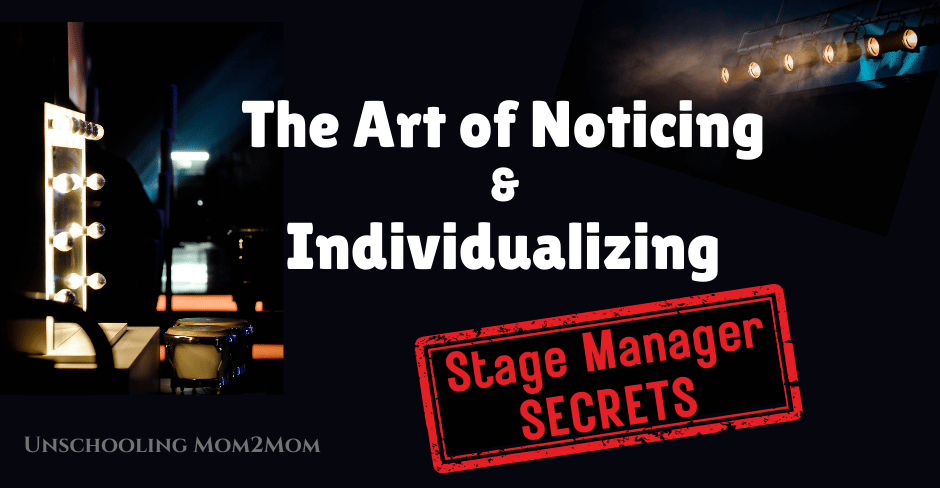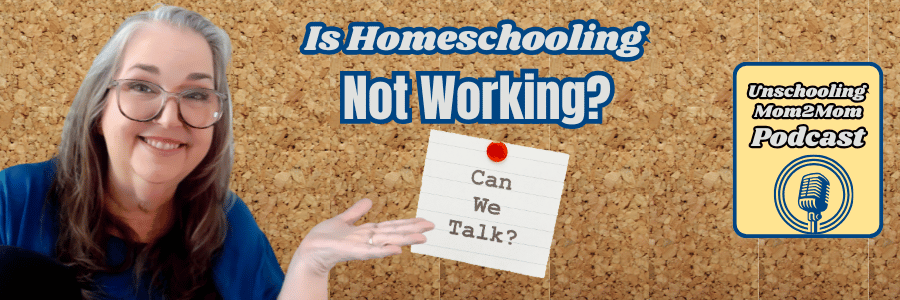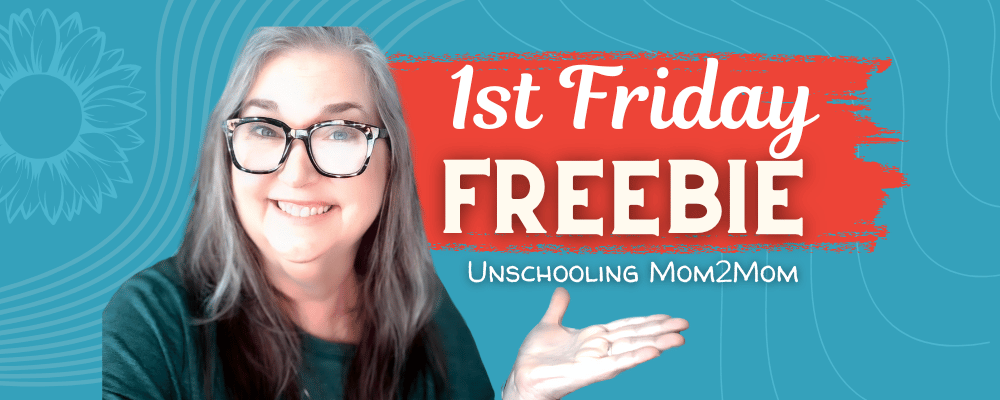Getting Your Spouse Onboard with Unschooling
De Smith writes:
I know from my own 15-ish years of experience, one of the most influential experiences is for dads/male-identifying folks to be around other, experienced unschooling dads. They seem to get a lot more from personally interacting with other dads, talking their own "language" and sharing some moments with their kids.
It seems as if the main concern - at least with homeschooling in general - is their kids being "weird" or perceived as such, because in typical male society, the "low man on the totem pole" is the "oddball" - the one that doesn't fit in, and the one that gets bullied, harassed, picked on. That seems to be a huge concern of dads, from their own school experiences - they want to protect their kid from that trauma.
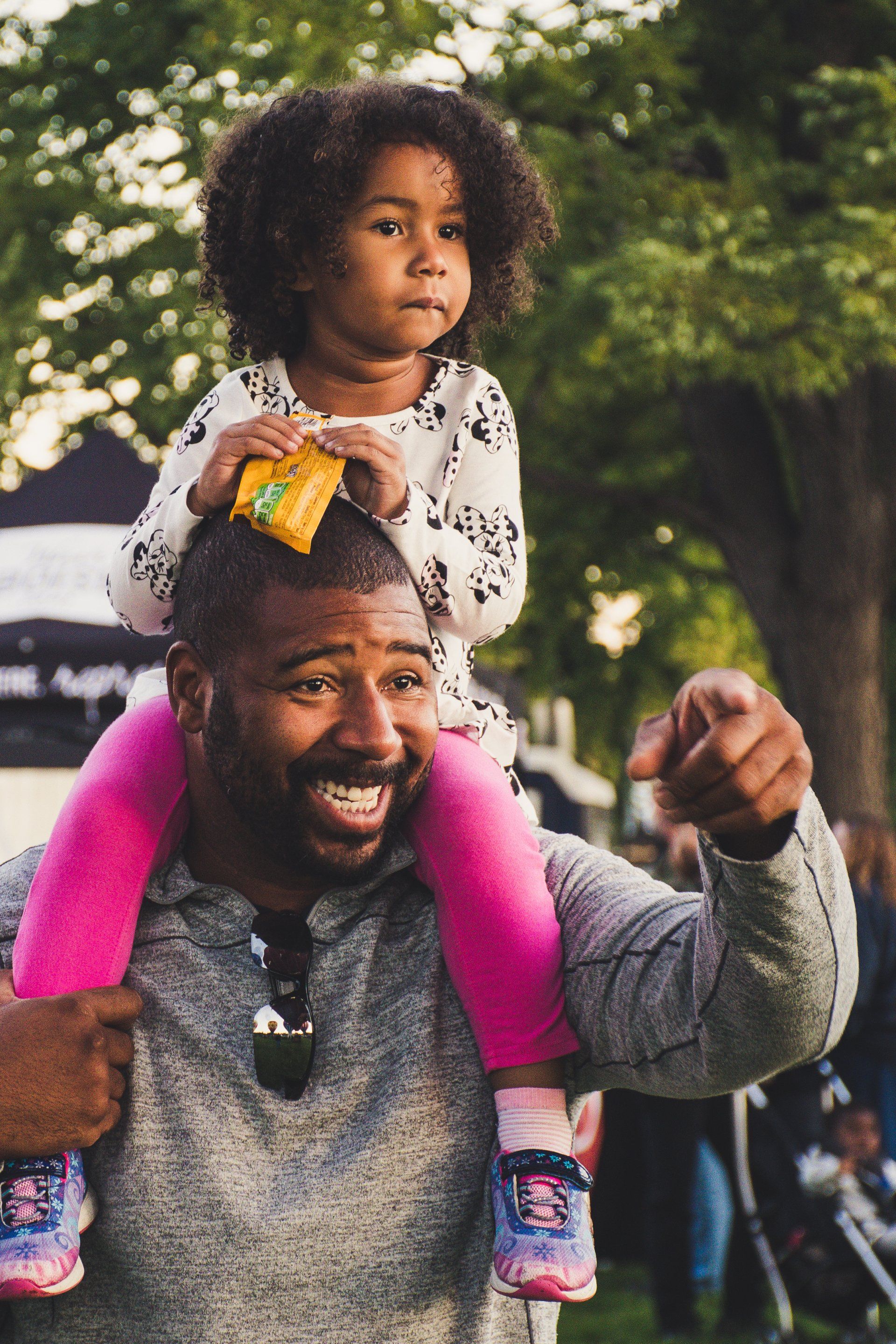
I've seen, time and again, how hanging out with other families or dads & kids - especially at a homeschooling/unschooling-focused event -
makes all the difference.
If you can get to a gathering/conference/park day - anything where you know like-minded families will be with their kids - for unschooling/homeschooling, that will go a long way to helping them see the benefits.
De also shares this from 2009:
My husband and I both saw the benefits of the academic side pretty quickly & easily; we'd both learned a lot outside of school, by taking things apart, exploring with parents/siblings, playing around with odds & ends, bits & pieces - whether it was metal, wood, or words & information.
As to the parenting side of things, the only thing I was sure of was that I didn't want to spank (which I ended up "resorting" to, out of desperation, right before unschooling), but all my experience (and my husband's) was with punitive, boss-parent, corporal punishment type parenting and these concepts were totally foreign to us. It took a while for me to really "get" it , then even longer to implement it on a regularly-reliable basis, but the struggle was harder & longer for my husband. One, he was a "tough guy" - leather jacket, long hair, rough-around-the-edges - all a defense mechanism to protect himself. Gentle didn't come naturally or easily to him. Add to that, that just as we were getting on board with unschooling whole life, he had a job change that took him out of state, on the road most of the year. There was no reliable schedule, and it wasn't like we could count on him being home in the evenings or the weekends, or even a day every other week - he was gone however long he was gone, often being 2-3 weeks at a time with 2 or 3 days between. That's a really hard schedule to implement & get in the habit of an entirely different style of parenting.
Add to that, that I'm a terribly (or used to be) "by the book" kind of person, preferring to read all the instructions before I start so I can "do it right;" I was quite apt to see things more in black and white when it came to rules or "doing it right".
And organized!!! I literally bought myself my own box of crayons and coloring book and colored paper and scissors and Monopoly and Sorry games - just so I could keep them the way I thought they should be (crayons organized by color in neat rows, no brokens, lightly sharpened) - so I could keep from harassing my kid about how the "family" ones were kept.
(I've relaxed a bit 😉 )

As to the details of the day-to-day "how to's,"
here's something I wrote a while back that may help:
You can suggest a path or invite your spouse to enjoy this unschooling path with you, hoping they choose to come with you, but if you push them toward that path, you're likely to be met with resistance.
The harder you push, the more resistance you're likely to encounter—to the point that the person you're pushing is likely to walk in the opposite direction the first chance they get.
If you do manage to get them on the path and you point out every tiny pebble, twig, root and bump in the path, try to physically steer them away from any possible obstacle, point out when they've stumbled what they did wrong and where they should have gone and how they should have acted to avoid the stumble, I don't imagine they'd want to travel along that path with you for very long.
It is quite easy to see every possible tiny misstep and potential mistake if you are
1) looking for them and
2) looking down at each and ever place a foot might fall.
A much more pleasant and successful way to traverse a path is to give a brief, cursory look at the condition of the path and to look forward, at the horizon—to where you're going, not "looking for possible trouble" in each footstep.
I was much more likely to do this for my children: to give them a general "heads up:"
"the path looks muddy and a bit slippery or it's kind of bumpy here-easy for a root to snag you up"
...and get on with the enjoyment of unschooling or a literal hiking path."
With Dave, I hovered... I jumped at each possible misstep,
"Pick up your foot there!"
"Don't walk over on that side, it's not the way I'd go!"
"Now, see-if you'd have walked where I said, that wouldn't have happened."
Ick.
Not literal hiking paths—that would be silly.
How I thought it was more prudent to do that with our unschooling path, I don't know.
It stirs resentment, it chases the enjoyment away, it interferes with the actual finding of that person's own way.
It was so hard for me to sit back and shut up and let my children and their father find their own relationship.
Why I thought I knew how someone should be a father, I don't know!
How I thought I knew better how their relationship should unfold, I don't know.
All I did was interfere in it and keep it from happening—even, at times, preventing it and undoing it.
I still find the advice I found on the unschooling groups quite valid:
Find an outlet.
- Find some other way to channel that pull, that desire, that almost-instinct.
- Put it to good use somewhere where it will do good - or at least where it will do no harm.
- Put it toward a hobby, revive a hobby it can be used for, start one, for crying out loud.
- Find a friend who's willing to be the receptor of that energy and when you're feeling it start to poke at you, contact that friend and let it rip!
- Find tiny things to sort and categorize.
- Needlepoint.
- Write.
- Anything that takes concentration, attention to detail and that satisfies that "it must be 'just so' urge."
It will be hard at first, but your partner and your kids will be happier for it, and they will make the path that is right for them.
~ January 2009


